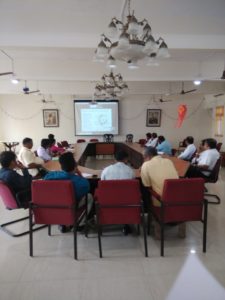
Picture Credit: abcdz2000, Welcome to Tivim Goa, CC BY-SA 2.0
Sustainable waste management calls for an integrated approach involving all stakeholders working towards waste minimization, efficient recycling, treatment, and disposal.
To address existing gaps in the knowledge and practise of effective solid waste management (SWM), the Deutsche Gesellschaft für Internationale Zusammenarbeit GmbH (GIZ) and The Energy and Resources Institute (TERI) is collaborating with Directorate of Municipal Administration (DMA) and Goa Waste Management Corporation (GWMC) along with the Corporation of the City of Panaji (CCP) in Goa.
The Indo-German project titled ‘Development and Management of Waste NAMA (Nationally Appropriate Mitigation Action (NAMA) in India’ is aimed at promoting better waste management practices in the state with the goal of decreasing greenhouse gas (GHG) emissions from the waste sector, as envisioned in the UN Framework Convention on Climate Change (UNFCCC). NAMA is a mechanism under the UNFCCC which enables developing countries to seek technical and financial support for GHG mitigation.

In Goa, workshops and capacity building programmes are being held along with a series of webinars on better SWM practices to hone the skills and enhance capacities of urban local body officials in charge of waste management from the fourteen Municipal Councils. According to Ms. Mehar Kaur, Research Associate and Area Convenor at the Centre for Waste Management, TERI, “Through this webinar series, we aim to communicate and share successful practices and methods to improve existing municipal SWM practices. We want to equip officials and staff with advanced tools and techniques for setting up and maintaining state of art waste management systems; and inform and motivate waste management staff to help boost overall efficiency for sustainable waste management.”
The webinar series, so far, have been effective in engaging remotely with officials from the state of Goa and build their capacities. While TERI-GIZ works with experts to deliver the best knowledge of waste management, the attendees also provide examples of the practical problems that arise from implementation of some of the best waste management practices.
Concludes Ms Kaur, “The webinar series provide an online platform for a two-way discussion and a holistic understanding of how to achieve better waste management practices and subsequently reduce GHG emissions from the waste sector in Goa.”
The next webinar is scheduled for February 2020. For further information on the waste NAMA project in India, please visit:
https://www.teriin.org/event/kick-workshop-implementing-low-carbon-measures-waste-sector



